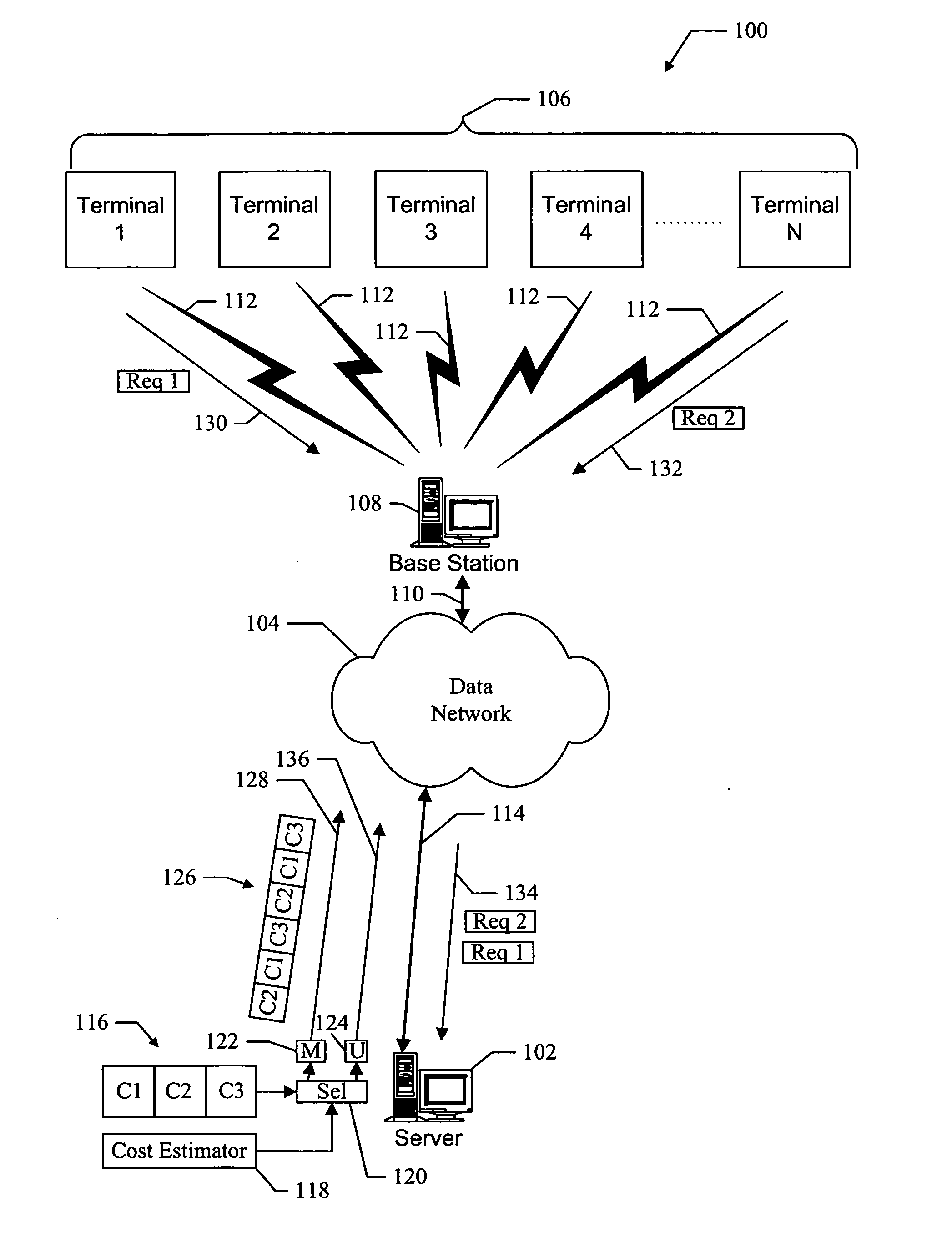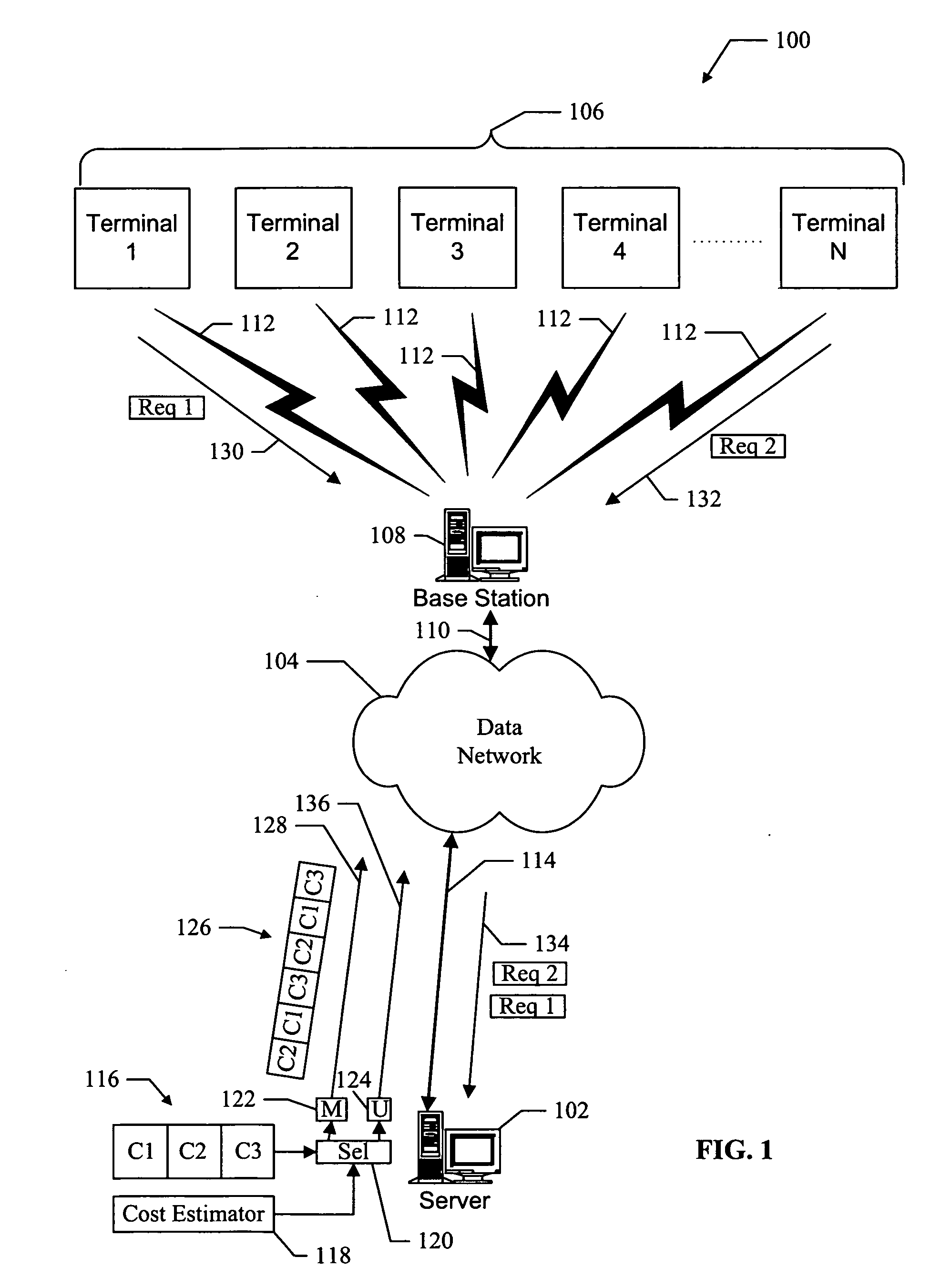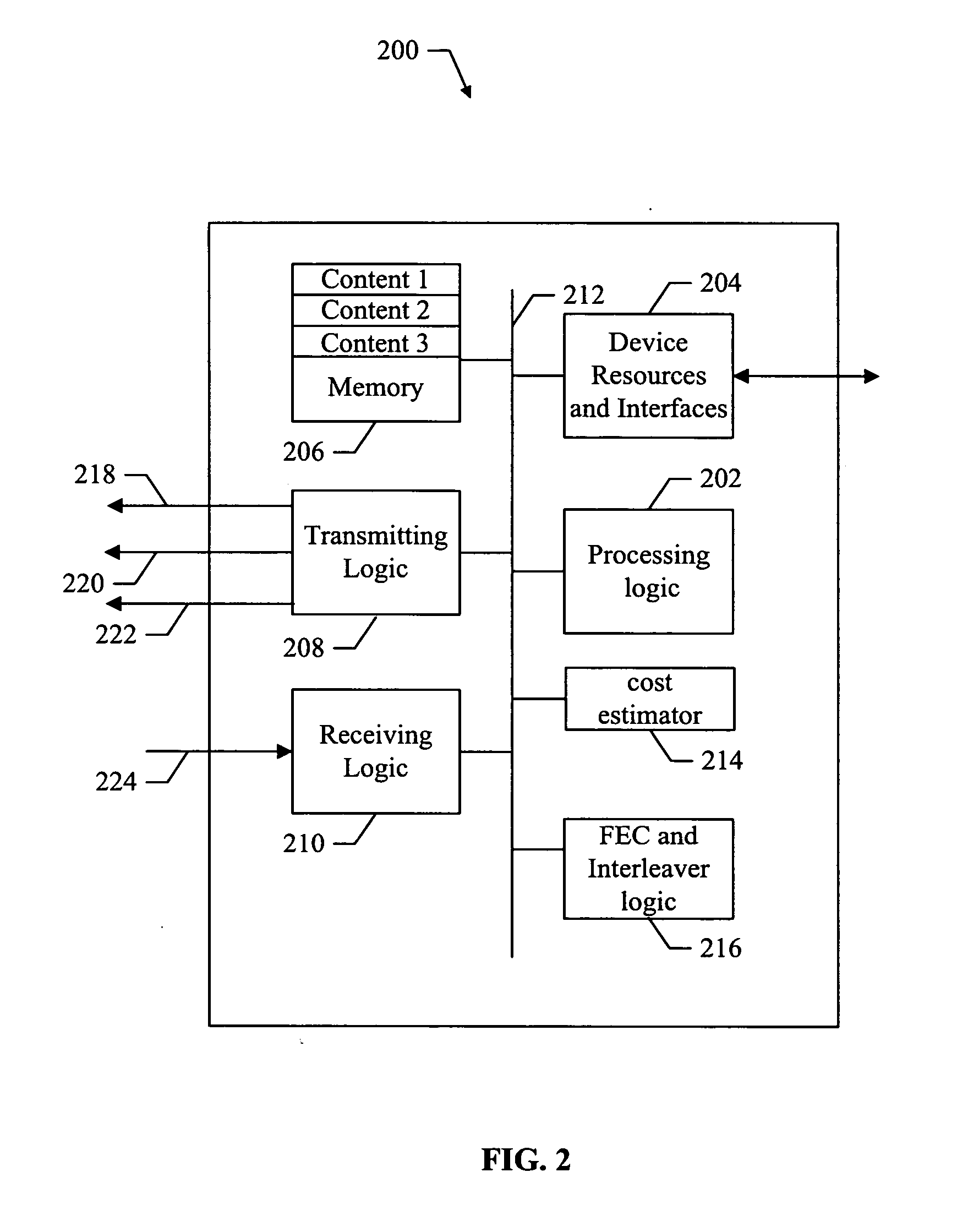Methods and apparatus for hybrid multicast and unicast transmissions in a data network
a data network and multicast transmission technology, applied in the field of content delivery, can solve the problems of ineffective approach, excessive and wasteful costs and resource utilization, and complicated distribution of content (data) to a large number of terminals, and achieve the effect of efficient utilization of precious air-link resources, less expensive, and avoiding costly re-broadcasting of data
- Summary
- Abstract
- Description
- Claims
- Application Information
AI Technical Summary
Benefits of technology
Problems solved by technology
Method used
Image
Examples
Embodiment Construction
[0030] The following detailed description describes one or more embodiments of a data delivery system that operate to efficiently deliver data from a transmitting server to a plurality of terminals in a wireless network. In one embodiment, the system utilizes a hybrid transmission technique that combines multicast and unicast transmissions to efficiently delivery data to the terminals. The system is especially well suited for use in wireless networks environments, but may be used in any type of network environment, including but not limited to, communication networks, public networks, such as the Internet, private networks, such as virtual private networks (VPN), local area networks, wide area networks, long haul network, or any other type of data network.
[0031] In the following description, a multicast transmission is defined to cover transmissions in one or more of the following categories. [0032] 1. One-to-Many (one sender and many receivers) [0033] 2. Many-to-Many (many senders...
PUM
 Login to View More
Login to View More Abstract
Description
Claims
Application Information
 Login to View More
Login to View More - R&D
- Intellectual Property
- Life Sciences
- Materials
- Tech Scout
- Unparalleled Data Quality
- Higher Quality Content
- 60% Fewer Hallucinations
Browse by: Latest US Patents, China's latest patents, Technical Efficacy Thesaurus, Application Domain, Technology Topic, Popular Technical Reports.
© 2025 PatSnap. All rights reserved.Legal|Privacy policy|Modern Slavery Act Transparency Statement|Sitemap|About US| Contact US: help@patsnap.com



